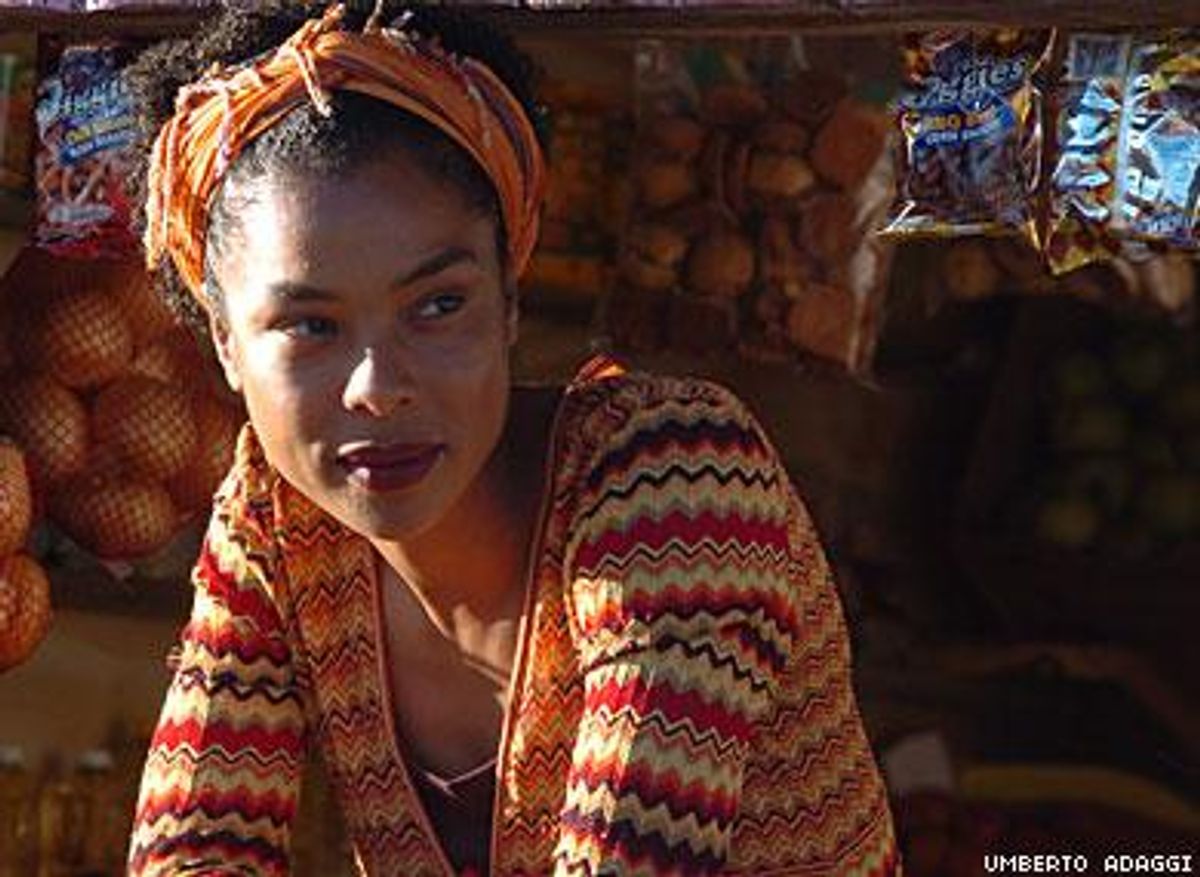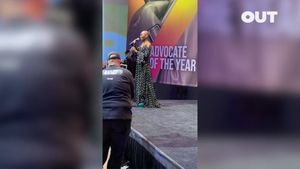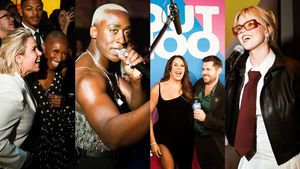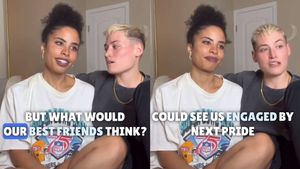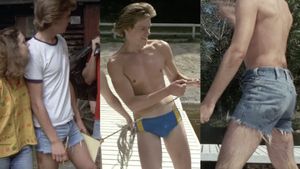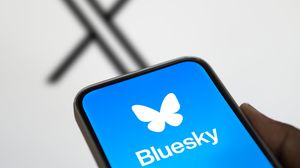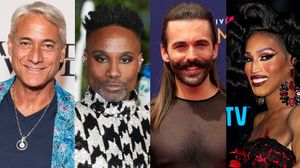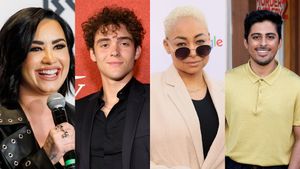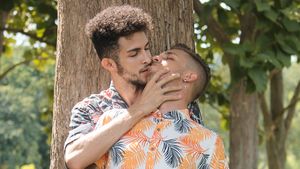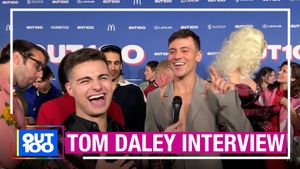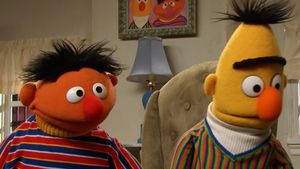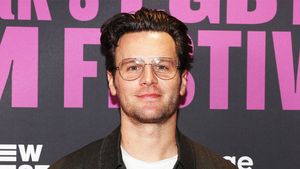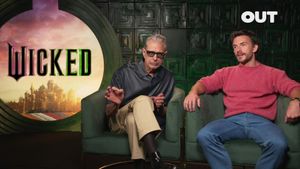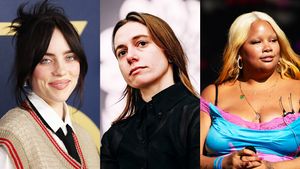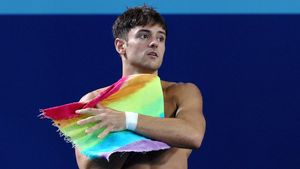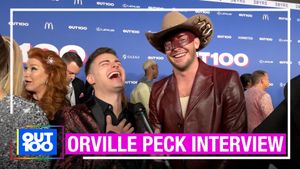CONTACTStaffCAREER OPPORTUNITIESADVERTISE WITH USPRIVACY POLICYPRIVACY PREFERENCESTERMS OF USELEGAL NOTICE
© 2024 Pride Publishing Inc.
All Rights reserved
All Rights reserved
By continuing to use our site, you agree to our Private Policy and Terms of Use.
You grow up believing you fit a certain definition, that you have a certain identity. Then one day you realize that definition is wrong -- and that to be true to yourself, you have to redefine your identity, even at the risk of alienation from society and estrangement from family and friends.
That's a scenario familiar to most LGBT people -- the classic coming-out story. But it's also the story of a different kind of coming-out, one documented by gay director Anthony Fabian in his first feature film, Skin.
Skin, starring Sophie Okonedo, Sam Neill, and Alice Krige, tells the true story of South African Sandra Laing, a black woman born in the 1950s to white Afrikaners who were unaware of their black ancestry.
Fabian, a veteran director of short films and documentaries, chose Laing's story for his first feature after he heard a radio interview with her in 2000. "Although I didn't realize it when I first heard this story and I didn't fully understand why it resonated so deeply with me, it's certainly a story that has resonated very much with the gay community," Fabian says.
The film begins its U.S. commercial run October 30, initially in New York and Los Angeles, followed by engagements in other major cities. Leading up to its release, the 44-year-old Fabian, American-born but a longtime U.K. resident, spoke with Advocate.com by phone from London about Skin and its parallels to the gay experience.
Advocate.com: What special resonance did the story have for you as a gay person?
Anthony Fabian: You could say that there's a gay paradigm for the story, because it's about a person who's brought up believing she's one thing and discovers that she's something else, confronts her parents, who are in denial and refuse to accept her as she is, and she has to go off and find her own people and her own community. Now, I reckon any gay person will be able to relate to that story. And I think needing the love and acceptance of our parents, wanting their love and acceptance, is something that we all go through and experience. All people do that, but gay people in particular do have that concern that they will be rejected when they come out to their parents.
This is your first scripted feature. Were you looking for a feature idea and found this, or did this find you and make you want to do a feature?
I was very much looking for a feature subject, because I had made a number of shorts, and my shorts were my calling cards in order to move on to doing features. So I was looking for a subject for my first feature, and hearing this story, I thought it would be fairly straightforward -- South Africa, it'll be an inexpensive place to film in, and it's such an incredible story, who can resist? Little did I know that particularly the factor that it deals with race, issues of color, would make it extremely difficult to get off the ground and that I was not only taking on board this one person's story but the whole history of South Africa and its culture over the last 30 years [of apartheid] -- it was an enormous undertaking.
Going back to the resonance of this with a gay person or with anybody who's felt marginalized -- there are the arguments among different groups, like "you can't compare your struggle to ours." How do you get around that and say, of course everyone's story is very particular, but there's a commonality?
What's interesting about this is that while it does resonate for people who feel, as you say, on the margins of society, whether it's through the color of their skin or being gay or being Jewish, straight white middle-class people respond to it almost exactly as strongly as these other groups. What they're recognizing is, number 1, we all have parents, and the parent-child relationships, which are the focus of the film, are something absolutely everybody can relate to, and secondly, the central question of the film is one of identity and belonging, and whether you are Wasp or Pakistani or whatever, you will ask yourself at some point, "Who am I and where do I belong?" I think that key question, which is Sandra's question, is resonating across the board. The person I absolutely dream of seeing the film is Barack Obama or Michelle, because if you read Dreams From My Father, it's the same question: Where do I belong? Am I white? am I black? In fact, there was an item in the paper that they just discovered that Michelle Obama has a white ancestor. These questions of genetics are so of the moment now in the United States because of Barack Obama, and this is what I'm hoping will allow the film to kind of capture the zeitgeist. It seems to resonate on many levels across many different communities
What is your "coming out to the parents" story?
I suppose I had a fairly easy run in that I fell in love when I was 20 years old, and my partner, who's still my partner, was very presentable -- good-looking, successful, charming -- and so it was kind of easy for them to be able to identify the whole thing within the context of a relationship. I was very afraid particularly of coming out to my father. My mother knew first, which is often the case, and I said to her, "If he ever asks you, you must tell him the truth." My father had remarried, and his new wife said, "I think Tony is in a relationship with this person, and it's not just a friendship," and my father rang my mother for confirmation and she said yes, it was the case, and he said, "Why didn't he tell me?" And she said, "He was afraid of your response, because you hadn't exactly been encouraging on the subject of gay people." And he immediately picked up the phone and there was a message on my answering machine saying, "This is your father. I want you to know that I know about your relationship and that I love you and I want you to call me as soon as possible." So it was rather heartwarming, and I must say my relationship with my father and my mother, particularly my father, has become extremely close, and certainly coming out enabled us to become closer.
Do you have an idea for a second feature yet?
Yes, I've got a number of projects that I'm juggling at the moment -- some that have been sent to me as a result of people seeing Skin, some things that I've been developing for a long time. We're sort of waiting to see what happens with the U.S. release, because if the film does well, things should move along more quickly. We're starting with 30 prints in 15 cities. If the film takes off, it will expand to 60, 120, and so on. I feel that Skin could certainly appeal to a very, very broad audience.
trudestress
From our Sponsors
Most Popular
31 Period Films of Lesbians and Bi Women in Love That Will Take You Back
December 09 2024 1:00 PM
18 of the most batsh*t things N.C. Republican governor candidate Mark Robinson has said
October 30 2024 11:06 AM
True
After 20 years, and after tonight, Obama will no longer be the Democrats' top star
August 20 2024 12:28 PM
Trump ally Laura Loomer goes after Lindsey Graham: ‘We all know you’re gay’
September 13 2024 2:28 PM
60 wild photos from Folsom Street East that prove New York City knows how to play
June 21 2024 12:25 PM
Melania Trump cashed six-figure check to speak to gay Republicans at Mar-a-Lago
August 16 2024 5:57 PM
Latest Stories
Gay Democrat is lone LGBTQ+ vote in Congress for anti-trans national defense bill
December 13 2024 5:37 PM
Who is Scott Presler? The gay conservative even the RNC won't employ
December 13 2024 3:08 PM
Teenagers are behind a rash of antigay crimes that have been tied to dating apps
December 13 2024 2:53 PM
Epic 'Wicked' lip sync surprise for Cynthia Erivo by Pattie Gonia
December 13 2024 1:56 PM
Texas City Council that targeted LGBTQ+ people gets voted out — and replaced with first gay member
December 13 2024 12:41 PM
Pete Hegseth flip-flops on women & LGBTQ+ service members amid bruising confirmation battle
December 13 2024 12:31 PM
Gabrielle Union & Dwyane Wade join Zaya Wade on Out100 red carpet
December 13 2024 12:28 PM
Out100: Reneé Rapp praises Cynthia Erivo
December 13 2024 12:22 PM
BREAKING: Nancy Pelosi hospitalized during European trip
December 13 2024 11:51 AM
40+ senators oppose anti-LGBTQ+, anti-abortion provisions in spending bills
December 13 2024 10:15 AM
Troy Masters, publisher of LGBTQ+ paper Los Angeles Blade, has died at 63
December 12 2024 8:06 PM
Out100 2024 party pics from Roland Fitz
December 12 2024 7:15 PM
Out100 2024: How are Sheryl Lee Ralph, Orville Peck holding space?
December 12 2024 6:30 PM
Donald Trump says he won’t debate trans bathroom use affecting ‘very small number of people’
December 12 2024 5:59 PM
Trending stories
Recommended Stories for You
Trudy Ring
Trudy Ring is The Advocate’s senior politics editor and copy chief. She has been a reporter and editor for daily newspapers and LGBTQ+ weeklies/monthlies, trade magazines, and reference books. She is a political junkie who thinks even the wonkiest details are fascinating, and she always loves to see political candidates who are groundbreaking in some way. She enjoys writing about other topics as well, including religion (she’s interested in what people believe and why), literature, theater, and film. Trudy is a proud “old movie weirdo” and loves the Hollywood films of the 1930s and ’40s above all others. Other interests include classic rock music (Bruce Springsteen rules!) and history. Oh, and she was a Jeopardy! contestant back in 1998 and won two games. Not up there with Amy Schneider, but Trudy still takes pride in this achievement.
Trudy Ring is The Advocate’s senior politics editor and copy chief. She has been a reporter and editor for daily newspapers and LGBTQ+ weeklies/monthlies, trade magazines, and reference books. She is a political junkie who thinks even the wonkiest details are fascinating, and she always loves to see political candidates who are groundbreaking in some way. She enjoys writing about other topics as well, including religion (she’s interested in what people believe and why), literature, theater, and film. Trudy is a proud “old movie weirdo” and loves the Hollywood films of the 1930s and ’40s above all others. Other interests include classic rock music (Bruce Springsteen rules!) and history. Oh, and she was a Jeopardy! contestant back in 1998 and won two games. Not up there with Amy Schneider, but Trudy still takes pride in this achievement.

